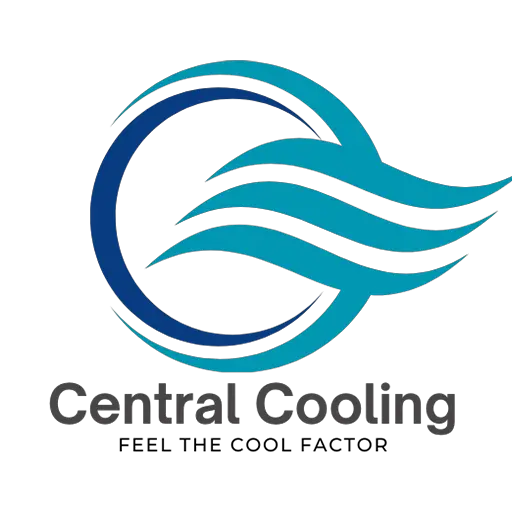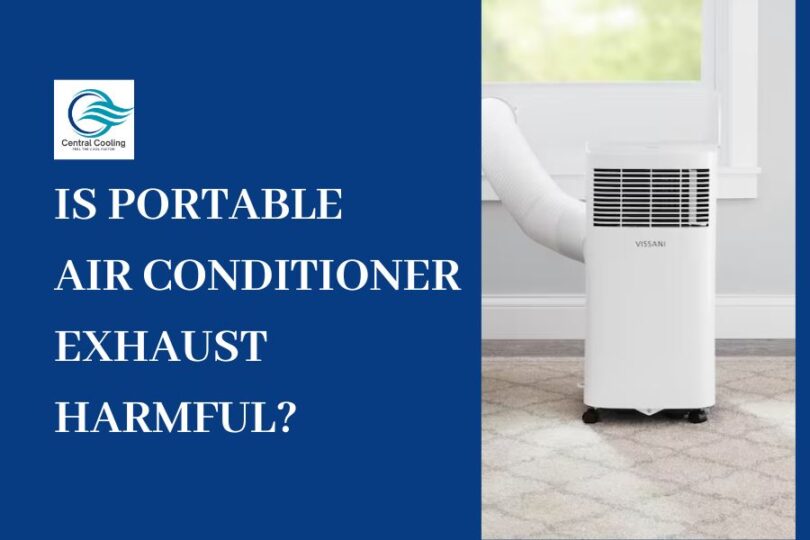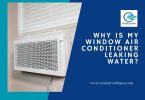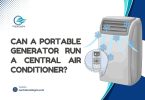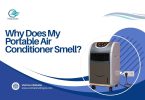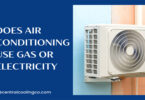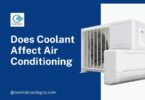Introduction:
Portable air conditioners have become increasingly popular due to their convenience and flexibility. They offer a practical solution for cooling specific areas without needing permanent installation. However, concerns have been raised about the potential harm caused by the exhaust emitted from these units. In this article, we will explore the answer to the query “Is Portable Air Conditioner Exhaust Harmful?” and its possible effects on health and the environment.
Understanding Portable Air Conditioner Exhaust:
Portable air conditioners extract calm, warm air from a room using refrigeration. The cooled air is then released back into the room, while the warm air is expelled through an exhaust hose. This exhaust typically contains heat, moisture, and small byproducts from the cooling process.
Composition Of Portable Air Conditioner Exhaust:
Portable air conditioners draw in warm air from a room, cool it, and then expel the heated air through an exhaust hose. The exhaust primarily consists of:
- Warm Air: The main component is the warm air initially in the room.
- Moisture: As these units cool the air, they also dehumidify it, leading to smoke in the exhaust.
- Refrigerant Gases (Potential): In cases of leaks or improper maintenance, refrigerant gases might escape, which could be harmful.
1) Potential Indoor Air Quality Concerns:
While portable air conditioner exhaust is generally not harmful, there are a few factors to consider that may affect indoor air quality:
Heat And Moisture:
The hot air and moisture released from the exhaust can increase the humidity levels in the room. High humidity can create a breeding ground for mold and mildew, leading to respiratory issues and allergies. It is essential to ensure proper ventilation and regularly clean and maintain the unit to prevent excess moisture buildup.
Airborne Particles:
Portable air conditioners may also release small particles, such as dust, allergens, and pollutants, into the air. These particles can worsen indoor air quality, especially for respiratory or allergy patients. Regularly cleaning or replacing the unit’s filters can help minimize the release of airborne particles.
Chemical Emissions:
Some portable air conditioners use refrigerants or other chemicals that can be potentially harmful if released into the indoor environment. It is crucial to choose units that are certified as safe and environmentally friendly. Proper installation and maintenance can also help prevent leaks or emissions from these chemicals.
Minimizing Potential Risks Of Indoor Air Quality:
To minimize the potential risks associated with portable air conditioner exhausts, here are some recommendations:
Proper Ventilation:
Ensure that your portable air conditioner is adequately vented to the outside using a window kit or venting system provided by the manufacturer. This will help remove hot air, moisture, and any pollutants from the room, maintaining a healthier indoor environment.
Regular Cleaning And Maintenance:
Regularly clean your portable air conditioner and replace the air filters to remove dust, allergens, and other particles from the air. Follow the manufacturer’s instructions for maintenance and consider scheduling professional care to ensure optimal performance and air quality.
Choose Electric-Powered Units:
If possible, opt for electric-powered portable air conditioners rather than fuel-powered ones to eliminate the risk of carbon monoxide emissions. Electric-powered units are generally safer and do not produce any combustion byproducts.
Monitor Humidity Levels:
Keep an eye on the humidity levels in the room where the portable air conditioner is used. High humidity can promote mold and mildew growth, so consider using a separate dehumidifier if necessary.
Consider Additional Air Purification:
If you have concerns about indoor air quality, consider using additional air purification methods, such as standalone air purifiers or plants that help filter the air naturally. These can further improve the overall air quality in the room.
2) The Environmental Impact Of Portable Air Conditioner Exhausts:
Portable air conditioners remove heat and moisture from the air, cool it down, and then release the excess heat and humidity outside through an exhaust hose. The exhaust typically contains hot air, water vapor, and small amounts of other byproducts, such as carbon dioxide.
While the environmental impact of portable air conditioner exhausts is not as significant as that of larger cooling systems, it is still essential to consider their potential effects. The main concern lies in the release of hot air and the additional energy consumption required to cool the space.
Energy Consumption And Efficiency:
Portable air conditioners are known to be less energy-efficient compared to central air conditioning systems. This is because they require additional energy to cool the space and remove the heat generated by the unit itself. The increased energy consumption contributes to higher greenhouse gas emissions and exacerbates global warming.
However, technological advancements have led to developing more energy-efficient portable air conditioners. Look for units with high Energy Efficiency Ratio (EER) ratings, which indicate their energy efficiency. Additionally, using portable air conditioners sparingly and maintaining proper insulation in your space can help reduce energy consumption.
Environmental Considerations:
Portable air conditioner exhausts also release small amounts of carbon dioxide, a greenhouse gas contributing to climate change. While the emissions from a single unit may be negligible, the cumulative impact of numerous portable air conditioners can be significant, especially in densely populated areas.
Furthermore, the release of hot air can contribute to the urban heat island effect, where cities experience higher temperatures due to human activities and a lack of green spaces. This effect can increase energy consumption, air pollution, and heat-related health issues.
Reducing The Environmental Impact:
There are several steps you can take to minimize the environmental impact of portable air conditioner exhausts:
- Choose energy-efficient models with high EER ratings.
- Use portable air conditioners only when necessary, and set them to higher temperatures when possible.
- Ensure proper insulation in your space to reduce energy consumption.
- Consider alternative cooling methods in less humid climates, such as fans or evaporative coolers.
- Support renewable energy sources to reduce the carbon footprint associated with energy consumption.
3) Potential Health Concerns Of Portable Air Conditioners:
While portable air conditioner exhaust may contain some pollutants, the health risks associated with these emissions are generally minimal. The pollution released is typically low, and the exhaust is usually dispersed into the surrounding environment, minimizing direct exposure to occupants.
However, individuals with pre-existing respiratory conditions, such as asthma or allergies, may be more sensitive to the particles present in the exhaust. In such cases, it is advisable to ensure proper ventilation and regularly clean or replace the air filters to reduce the potential for irritation or exacerbation of symptoms.
Minimizing Health Risks Associated With Portable Air Conditioner:
To minimize any potential health risks associated with portable air conditioner exhaust, it is essential to follow these guidelines:
- Proper Ventilation: Ensure the exhaust hose is installed and directed outside the room or through a window. This helps prevent indoor air recirculation and promotes fresh air intake.
- Maintenance: Clean or replace the air filters regularly as the manufacturer recommends. This helps improve the air quality and reduce the number of particles in the exhaust.
- Room Size: Choose an appropriately sized portable air conditioner for the room. Oversized units may produce more exhaust, while undersized units may struggle to cool the space efficiently, leading to increased operation and the potential for higher emissions.
- Environment: Keep the area around the portable air conditioner clean and free from dust and debris. This can help prevent the unit from circulating additional pollutants into the air.
Conclusion:
while portable air conditioners offer undeniable convenience and flexibility, users must exercise responsibility in their usage to mitigate potential negative impacts. The exhaust emitted from these units contains elements that, if not managed properly, could pose risks to both health and the environment. Understanding the composition of portable air conditioner exhaust and its potential effects on indoor air quality and the surrounding ecosystem is crucial.
By acknowledging the composition of portable air conditioner exhaust, users can take proactive steps to minimize its impact. This involves proper ventilation to prevent indoor air stagnation and mold growth, regular maintenance to ensure efficient operation and air quality, and consideration of energy-efficient models to reduce environmental footprint. Additionally, users should be mindful of room size and placement to optimize cooling efficiency and minimize emissions.
Ultimately, while portable air conditioners provide a convenient solution for localized cooling needs, their usage should be balanced with a commitment to environmental stewardship and indoor air quality. By adopting responsible practices and staying informed about the latest developments in air conditioning technology and sustainability, users can enjoy the comfort of portable cooling systems without compromising their health or the planet’s well-being.
Disclosure: We may get commissions for purchases made through links in this post.
